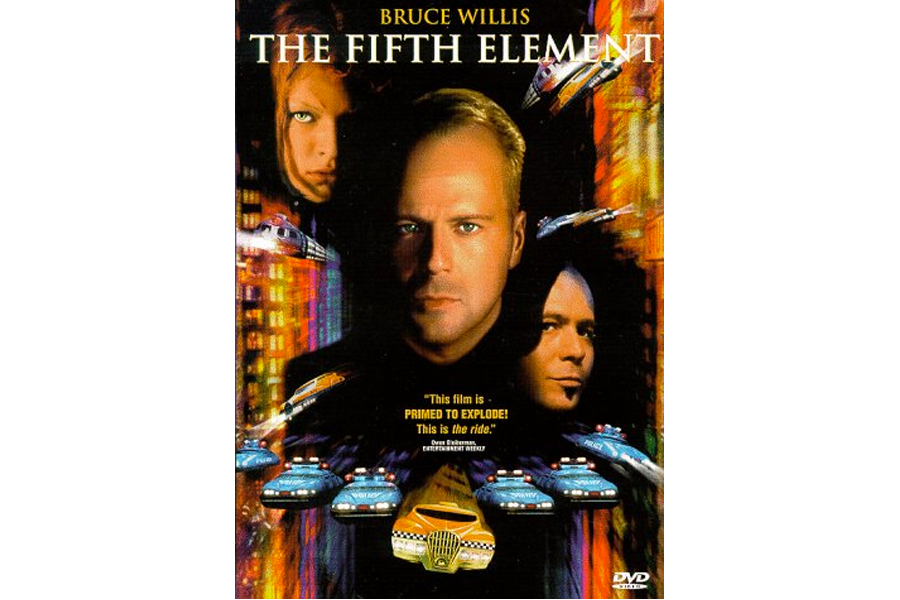This campy 1997 sci-fi/action film, directed by Luc Besson, focuses on down-on-his-luck taxi driver (and former special-forces officer) Korben Dallas (Bruce Willis), who quite unexpectedly meets a woman named Leeloo (Milla Jovovich) and finds himself a part of a galaxy-spanning quest for four MacGuffins that will literally save the world.
As a predictably apocalyptic force known as the "Great Evil" descends on Earth, Korben and Leeloo – a genetically modified super-being, of course – must contend with weirdo billionaire industrialist weapons dealer Emanuel Zorg (Gary Oldman), weirdo pop star and galactic celebrity radio host Ruby Rhod (Chris Tucker), a bumbling priest (Ian Holm), and a whole bunch of dangerous, nameless alien goons.
The world of "The Fifth Element" is fully realized and finely detailed, from the squawking yet polite warnings in Dallas's flying taxicab and the incredibly economical use of space in Dallas's apartment to the insane fever dream that is 23rd-century mass-media spectacle. Though the film received mixed reviews on release, it is considered by many to be a cult classic.
The special-effects work in the film relied heavily on miniatures. Director Luc Besson told IndieWire in a 2013 interview that he felt he had made his movie right before some key filmmaking technology breakthroughs. "I was a little bit frustrated," he said. "So when I did the film it was all blue screen, six hours, dots on the wall, takes forever to do one shot. Now, basically, you put the camera on your shoulder and then you run and then you add a couple of dinosaurs and spaceships. And I was so frustrated because it was not so easy at the time. So I always think to myself that I would avenge one day and use all the new tools to do a sci-fi film for sure."






